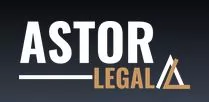NSW Parliament recently passed anti-protest laws, in the form of amendments to existing legislation that govern the extent of protesting.
The effect of these amendments has broadened the scope for criminality in the context of protesting, and conversely limited the right to protest in NSW. This is despite the right to protest being an integral component of democratic nations akin to Australia.
Consequently, the anti-protest laws have been met with criticism and negative public sentiment.
Is there a right to protest in NSW?
There is a right to protest in NSW pursuant to Article 21 of the International Covenant on Civil and Political Rights (ICCPR).
As Australia has signed and ratified the ICCPR, all states are bound to recognising and upholding the right to protest.
Article 21 sets out that "the right of peaceful assembly shall be recognised". This right is to be executed free from restrictions, with the following exemptions:
- National security;
- Public safety;
- Public order;
- The protection of public health, morals or the rights and freedoms of others.
Anti-Protest Laws NSW
The new anti-protest laws in the NSW have been enacted to address disruptive protest activity. It extends the criminality of unauthorised conduct to include activities on all major roads and facilities in addition to major bridges and tunnels.
Section 144G of the Roads Act 1993 outlines that a person must not enter, remain on, climb, jump from or otherwise trespass on any part of the Sydney Harbour Bridge, or any other major bridge, tunnel or road if that conduct–
- Causes damage to the bridge, tunnel or road, or
- Seriously disrupts or obstructs vehicles or pedestrians attempting to use the bridge, tunnel or road.
Section 214A of the Crimes Act 1900 (NSW) outlines that a person must not enter, remain on or near, climb, jump from or otherwise trespass on or block entry to any part of a major facility if that conduct–
- Causes damage to the major facility, or
- Seriously disrupts or obstructs persons attempting to use the major facility, or
- Causes the major facility to be closed.
The maximum penalty for both protest offences are a $22,000 fine or two years gaol, or both.
Preparing to Attend a Protest
If you are preparing to organise a protest or rally, you must obtain the correct permit to stage a demonstration. You also need to submit a Notice of Intention to Hold a Public Assembly to the Commissioner of Police, within the relevant time frame.
As an attendee, you may consider communicating with a Sydney criminal lawyer to observe the protest and provide information on rights to protestors.
What if you are arrested at a protest?
If you are arrested at a protest, you can be charged with an offence depending on your conduct. If you are arrested you should make sure:
- Police identify themselves when arresting you and state the reason(s) for arrest.
- You have the right to remain silent and should not answer any questions beyond your name and address.
- If police seize your phone, you are not required to provide them with your passcode unless they issue you with a Digital Evidence Access Order.
- Contact a specialist criminal lawyer promptly to ensure your rights are protected.
- An official complaint about the NSW Police Force or its employees can be made to the Commissioner of Police or the Law Enforcement Conduct Commission (LECC).
Criticism of Anti-Protest Laws
The NSW Council for Civil Liberties has publicly condemned the NSW Parliament's amendments – Lydia Shelly, the President of NSW Council for Civil Liberties, calling for their immediate repeal.
Criticism primarily is concentrated on the disproportionality of the 'punishment that can be imposed for offences committed by protestors'. Furthermore, the laws are characterised as undemocratic, un-Australian, regressive and a subversion of public interest.
Shelly subsequently urges the government to, "immediately commit to a Human Rights Act that will protect the right to protest".
The content of this article is intended to provide a general guide to the subject matter. Specialist advice should be sought about your specific circumstances.


